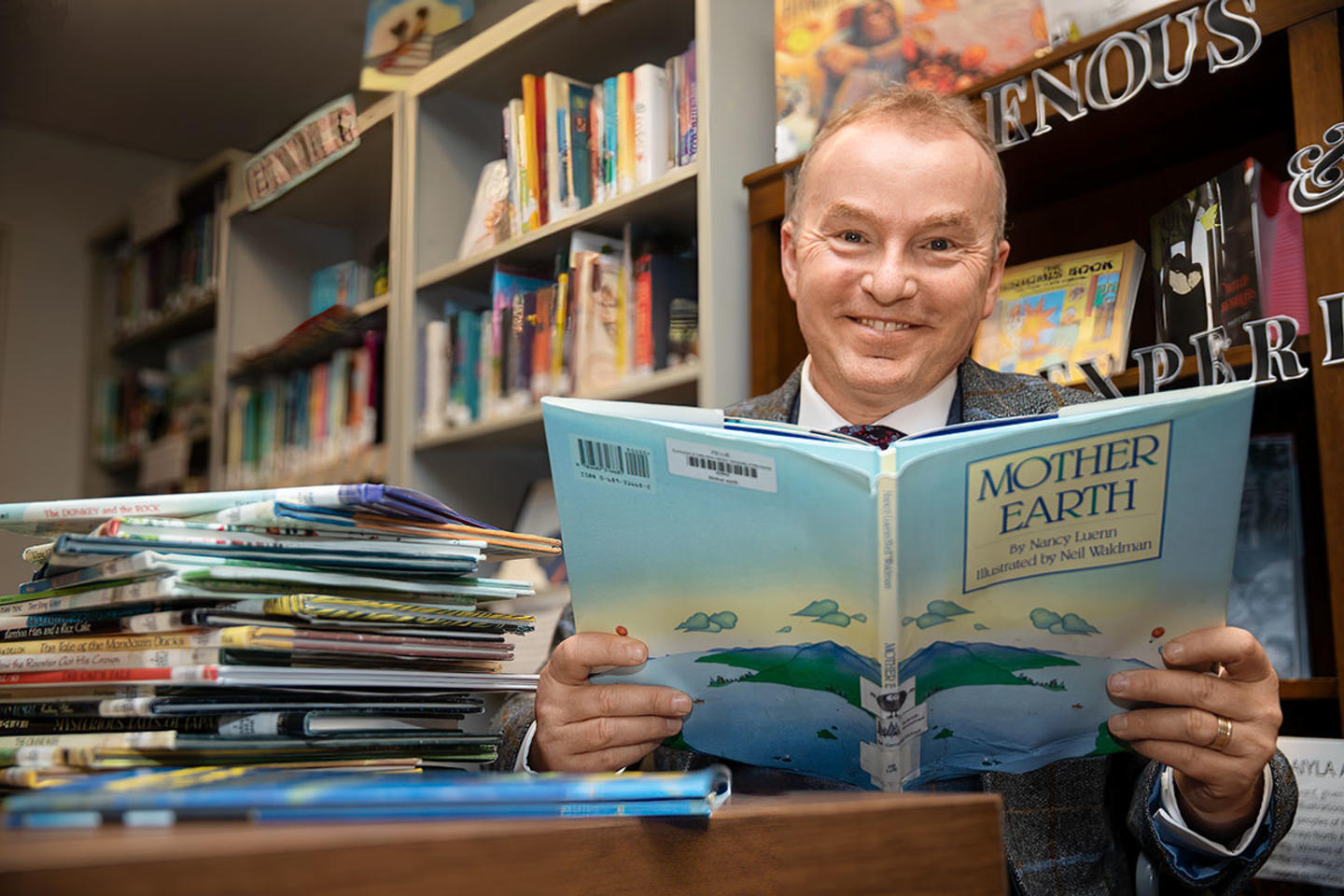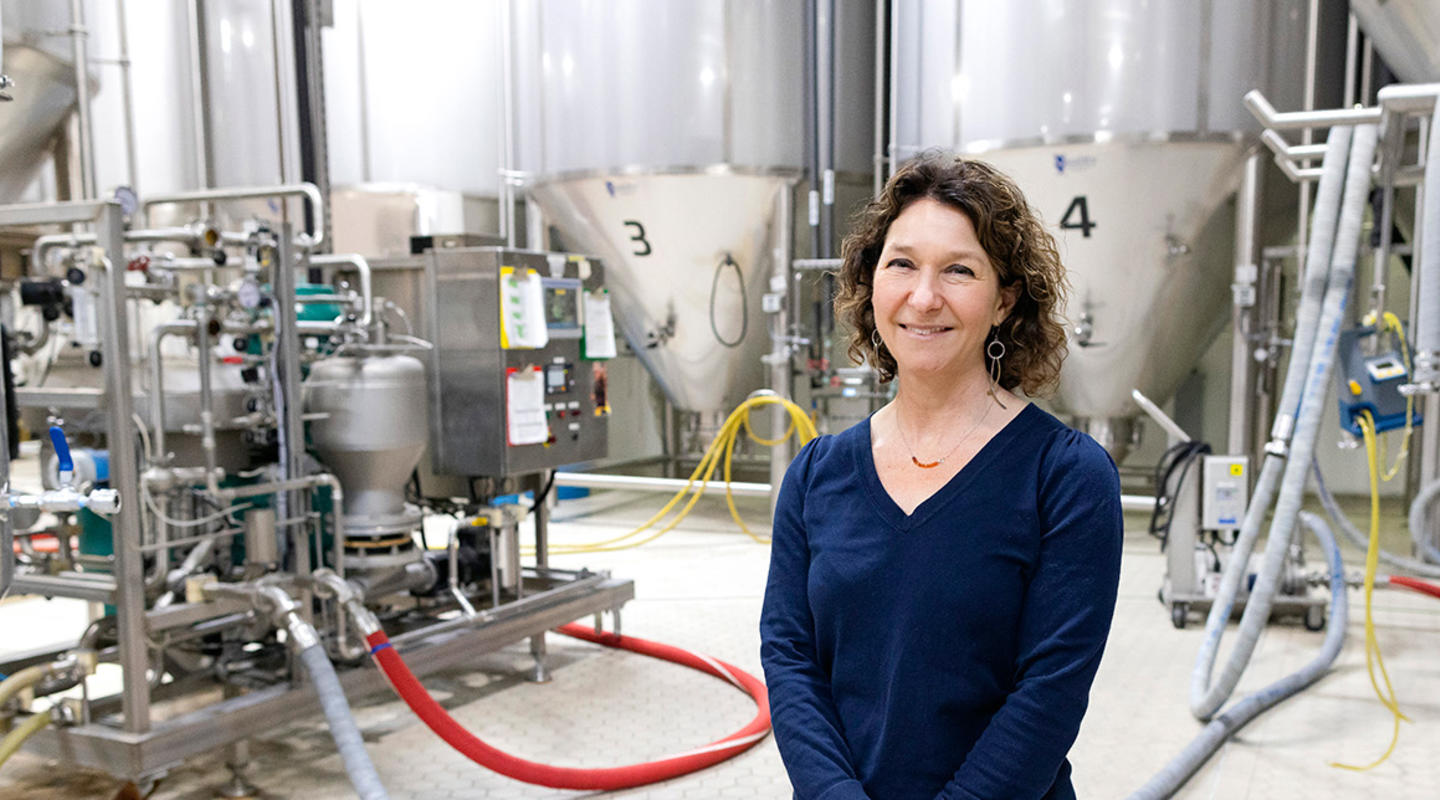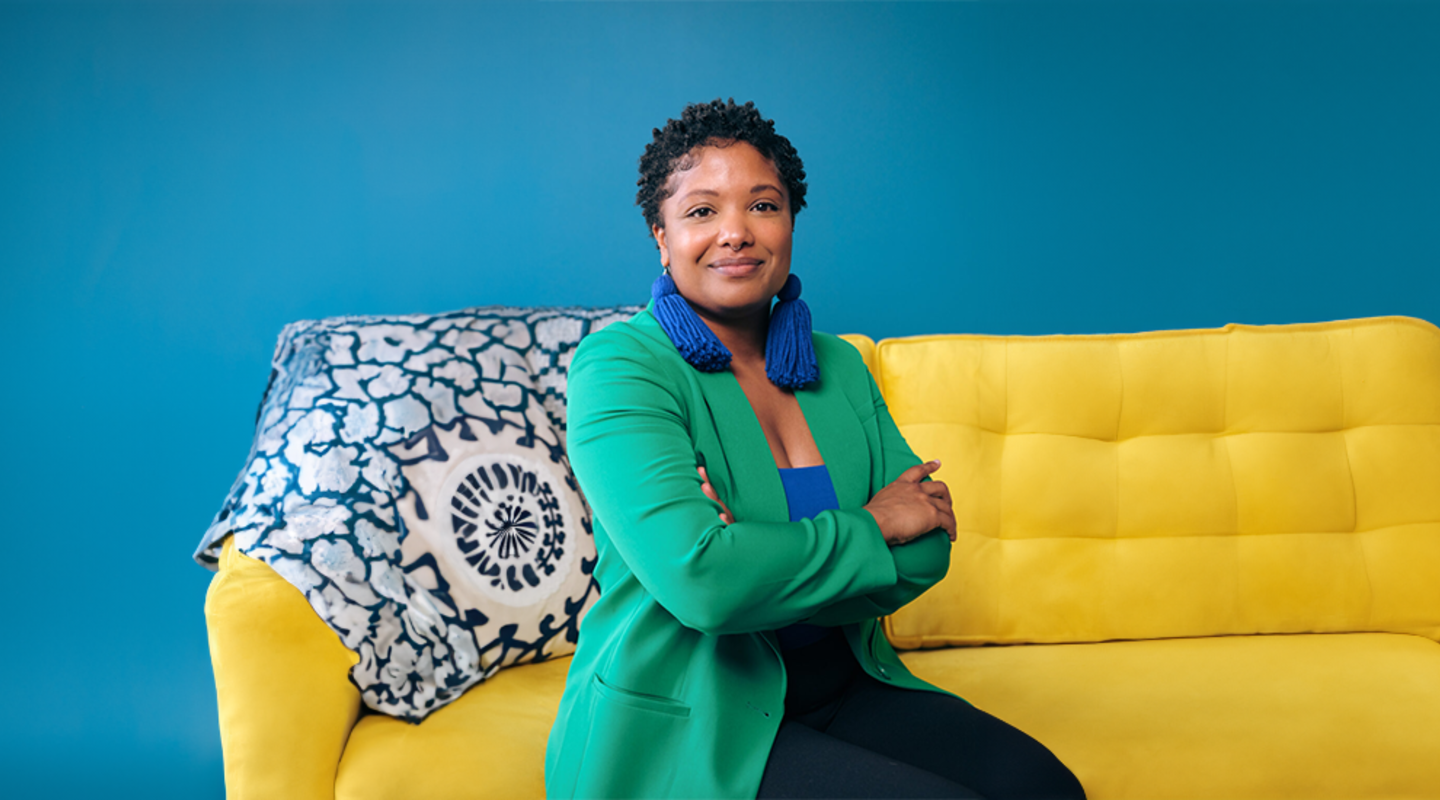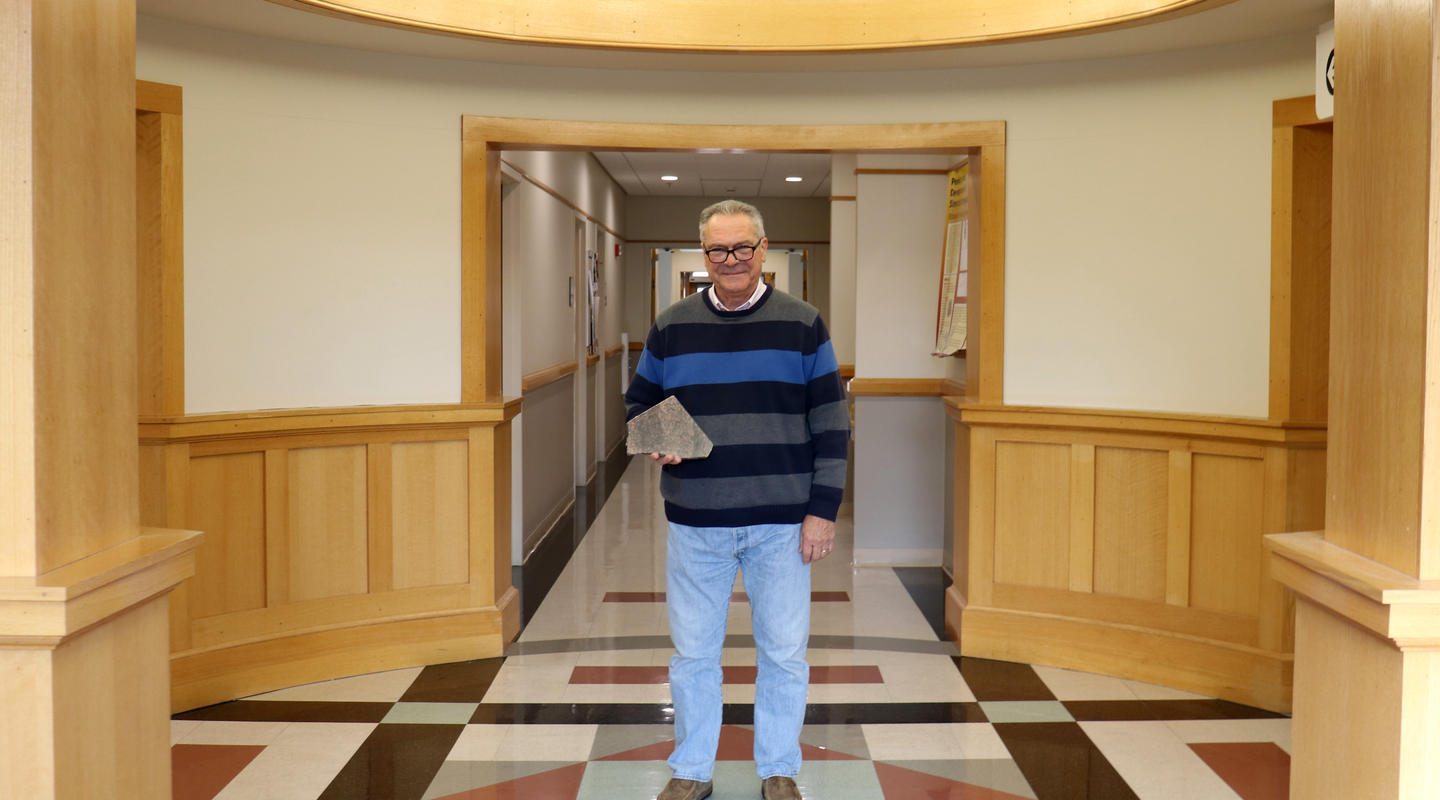
Photo credit: Greg Helgeson
Climate change may well be the defining issue of our time—and generations to come will experience the greatest impact.
Through the University of Minnesota Center for Climate Literacy, professor Marek Oziewicz in the College of Education and Human Development wants to give youth the information and tools they need to rewrite the future of climate change.
Oziewicz defines climate literacy as “an understanding of climate change that includes facts and numbers, but centers developing attitudes and values to respect our planetary home.” He says the best way to change attitudes is not strictly through science but through storytelling.
“We are hardwired as humans to think through stories,” he says. “Stories are the starting point of change.”
The Center for Climate Literacy is compiling a searchable database of children’s and young adult literature focused on environmental themes, along with resources for K-12 educators to use in their lesson planning. The center is also piloting a program with local teachers to develop a curriculum focused on climate literacy. The end goal is to design useful teaching materials that are easily accessible to educators.
The center is focused on storytelling for children and young adults because they are poised to bear the brunt of climate change. Plus, schools also offer an opportunity to reach millions of people in the K-12 audience.
“Over 80% of parents want children to learn, and 86% of teachers want to teach about climate change,” Oziewicz says. “Even if you reach 5% of children, that’s a huge impact. They go back to their families and they become advocates and educators.”
The Center for Climate Literacy team includes “climate ambassadors,” or storytellers—authors, illustrators, filmmakers—whose work centers on environmental themes. One climate ambassador is Katherine Applegate, an award-winning young-adult novelist whose books explore the interaction between people and animals.
“When I work with children to create stories, I tell them: Find something that’s making you furious and focus on that,” Applegate says. “Someone once told me that good fiction is people misbehaving. A lot of misbehaving that happens in climate fiction takes the shape of kids fighting the status quo. It’s one of the major takeaways kids can pick up from stories on climate change. It’s okay to be angry about this.”


